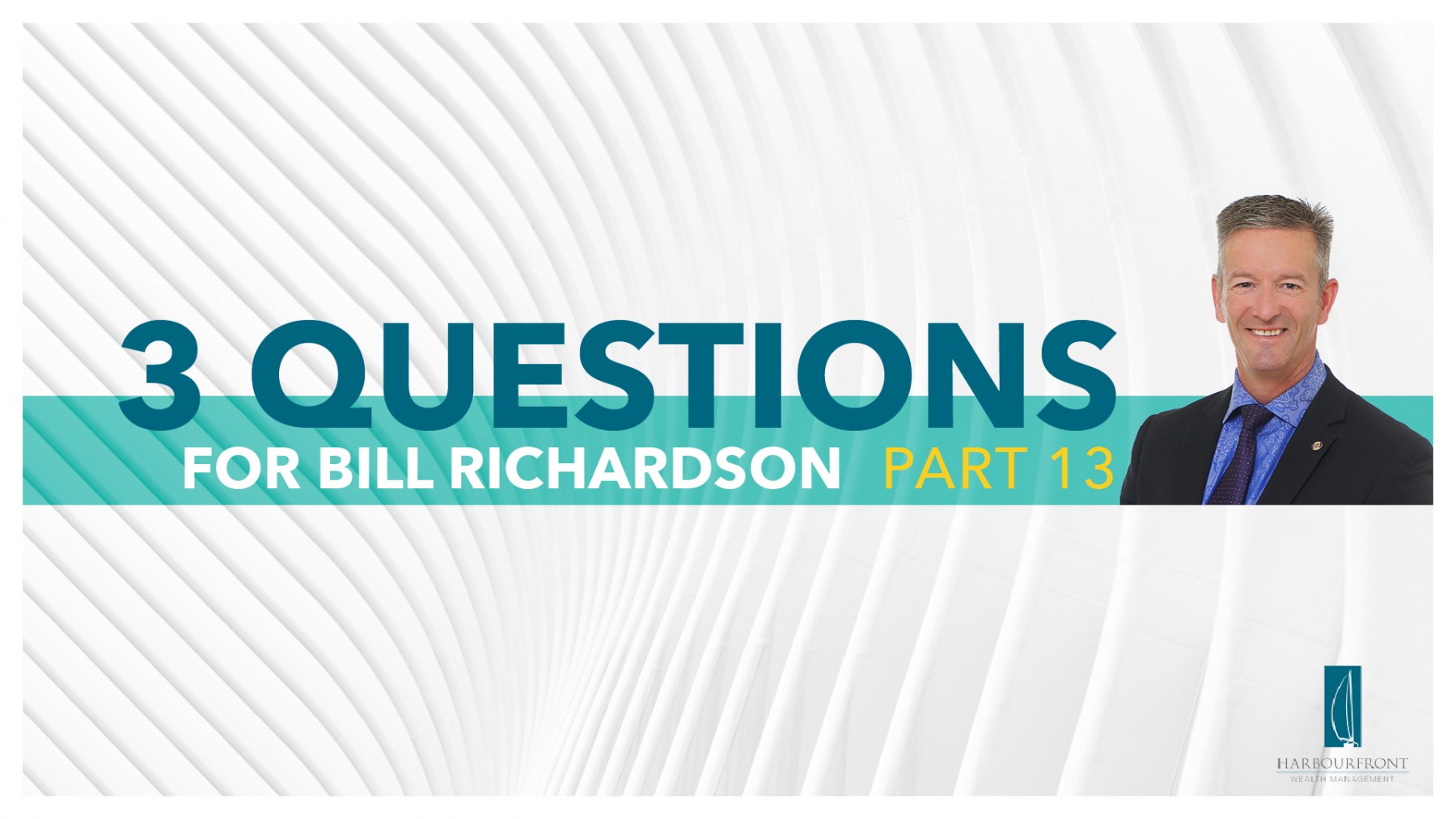Three Questions for Bill Richardson Part 13
Question 1: Now that there is a new President Elect in the US, how is this going to affect financial markets?
Once again, this is a question asking me to predict the future. Monday, November 9th was the first trading day following Biden being elected the 46th President of the United States and we saw some huge moves in stocks. Many of the bigger moves were stocks that have been out of favour and had strong recovery bounces. Financials that have performed relatively poorly in the recovery had a strong day. American Express (+21.39%), Mastercard (+9.86%) and Visa (+7.16%) did very well. Travel related stocks like Booking.com (+18.75%), Southwest Airlines (+9.7%) and Marriott (+13.87%) had great days as people speculate that with a new government and potential vaccine, travel will resume soon. Remember, these are one-day rallies.
Rather than answer the question because it is asking for a prediction, I am going to address these market moves and a psychological factor that hurts performance over the longer-term. It is called FOMO (Fear of Missing Out).
While these stocks had great runs, many that we have held over the past few months, like Amazon (-5.06%) and NVDIA (-6.4%) fell sharply. A stock like Clorox (-10.62%) dropped as well as investors predicted that nobody would need to disinfect anymore if there is a vaccine.
FOMO is a greed factor that leads to greater trading activity and over time reduces performance. It is also hindsight biased. There wasn’t anything that would have told us that this was going to happen if Biden’s election was confirmed and who knew that Pfizer was going to announce they have a potential vaccine that may make it into the marketplace within weeks or months.
Even with this rally, American Express is still down almost 10% year-to-date and Booking is still down 2.6%. Investing is not a game of perfection. The goal is to have portfolios positioned for success at all times by adjusting to changing circumstances and available information. It is about always trying to be approximately correct and not precisely wrong and living within our clients’ risk tolerance and managing the psychological factors.
My Prediction On The Election: Great companies with a history of consistent and predictable earnings growth, where that growth is expected to continue into the future and that are trading at reasonable valuations will continue to perform well, but they will have periods of poor price performance which can be compensated for by diversification.
Question 2: Here’s a question that we get a lot. How much do I need to save for a comfortable retirement? I’m thinking $1 million sounds like a good number.
Back in the early ‘60s, Frank Mahovlich was in a salary battle with Punch Imlach and he received an offer from James Norris, owner of the Chicago Black Hawks for $1 million dollars, which was eventually matched by the Toronto Maple Leafs. This contract got him the nickname “The Big M”.
Well, to quote Yogi Berra, “a nickel ain’t worth a dime anymore.” Although $1 million has always been considered a large amount of money, determining if it enough really comes down to what it will cost to support your desired retirement lifestyle and eventually how long you live.
It is a rather complicated calculation as we need to look at income sources, such as pensions, CPP and OAS but we have software to do the “what if” scenarios.
A good way to approach this is to identify your future needs for money. Let’s call these baskets. You may have a retirement basket, major purchase baskets, home renovation baskets, helping your children buy a home baskets, etc. Then allocate your money to the appropriate baskets. Sometimes, you can use insurance to fill a basket, like your legacy basket. It is a bit of a process but it gives you a broader picture than focusing on a single basket, like retirement.
Question 3: Every time my spouse and I try to discuss money, we end up having a big fight. How do you do investment, insurance or estate planning when it is such an emotional discussion?
Money and emotion go hand in hand…a big reason why managing one’s own money often leads to sub-par results. Although you may have been married 20, 30 or 40 years, that doesn’t mean that your psychological approach to investing will be the same. Spouse A may be a risk taker and Spouse B may be totally risk averse. Maybe Spouse B had some very negative experiences or grew up in a family that suffered through tough times and this may affect how you approach money for a lifetime.
In many cases, the investment knowledge of one spouse is much better than the other and with knowledge comes confidence. There is no simple solution to this problem. We can help you both to better understand your personal approach and we may be able to help you find common ground. As advisors, a big percent of our time and effort is spent managing psychological factors. We can help people by educating and coaching them through these emotional discussions. Although sometimes difficult, failing to do the necessary planning can turn out to be very costly. All we can do is suggest that you address your financial issues and help you through the process.
Until next time, have a great day!
Bill

